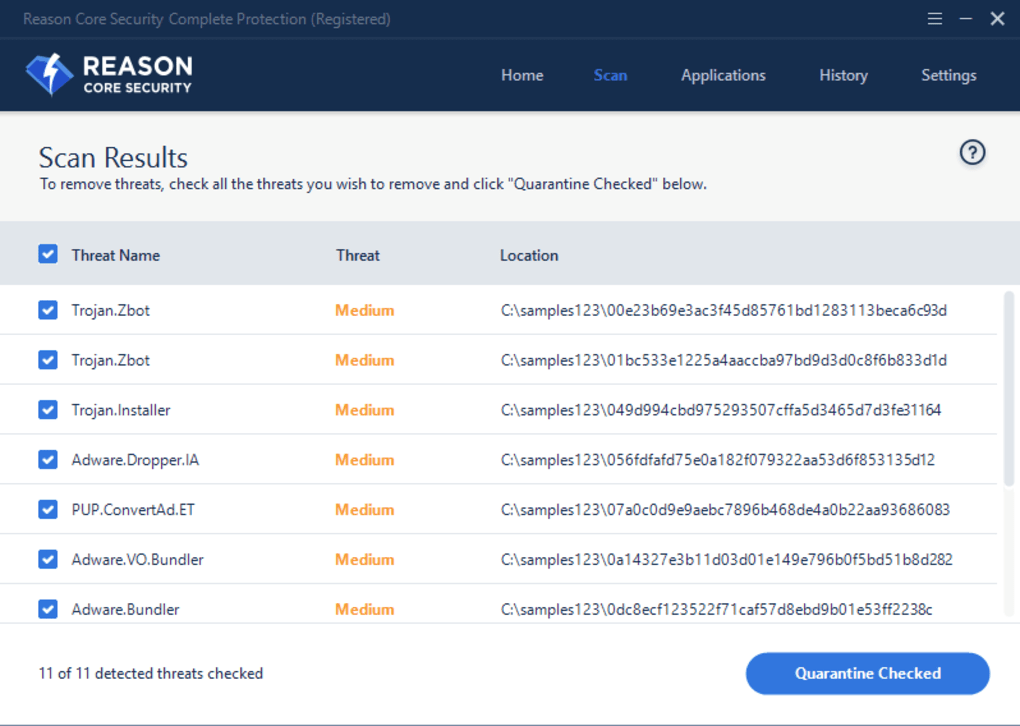

- #How to uninstall reason core security .exe
- #How to uninstall reason core security manual
- #How to uninstall reason core security Patch
- #How to uninstall reason core security software
- #How to uninstall reason core security windows
#How to uninstall reason core security software

Is rsEngineSvc.exe safe, or is it a virus or malware? (optional offer for Reimage - Website | EULA | Privacy Policy | Uninstall) Recommended: Identify rsEngineSvc.exe related errors Please read the following to decide for yourself whether the rsEngineSvc.exe file on your computer is a virus or trojan horse that you should delete, or whether it is a valid Windows operating system file or a reliable application. In some cases, executable files can damage your computer.
#How to uninstall reason core security .exe
exe extension of a file name displays an executable file. The software is usually about 7.76 MB in size. RsEngineSvc.exe is an executable file that is part of the Reason Core Security program developed by by Reason Software Company Inc. So the answer to your question isn't always obvious but depending on various issues. It's also depending on the system your building, the context it's in, the level of compliancy required, the further findings of the review, the risk this (and/or other) finding(s) is bringing to the system, the level of acceptance of this risk by the organisation, etc. IMO this is not a one-on-one question/answer. Should we push back on them and say that nobody else is requiring this? A bit like the famous 'Use PHP input for field settings ' option on the admin/user/permissions page. I think we should be able to build a system (drupal) where a system-maintainer is able to switch some issues on/of depending on the level of security wanted/needed.
#How to uninstall reason core security Patch
So, what is the solution if your PCI reviewer sees this as a problem? Do we just patch it to remove the call to phpinfo and replace it with a suitable message? In my experience most of the time after an audit/review, there was a management discussion (builder/auditor/client) about the outcome, the findings, severity and a follow up (or not). Testing will also generate error messages, but knowing what error paths were covered is a challenge.

#How to uninstall reason core security manual
Manual approaches: A code review can search for improper error handling and other patterns that leak information, but it is time-consuming. Static analysis tools can search for the use of APIs that leak information, but will not be able to verify the meaning of those messages. Automated approaches: Vulnerability scanning tools will usually cause error messages to be generated. The goal is to verify that the application does not leak information via error messages or other means. So I'm curious the the reason why this issue only disqualifies the site.


 0 kommentar(er)
0 kommentar(er)
